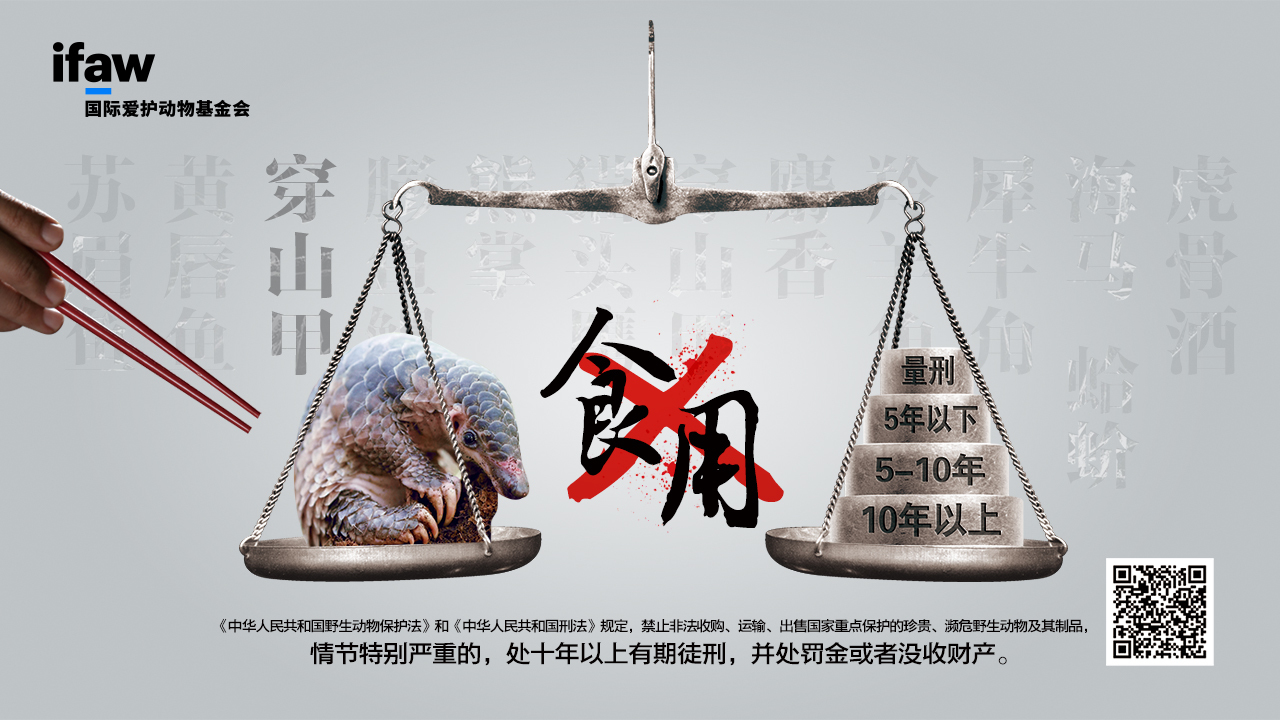will we learn our lesson from the coronavirus epidemic?
will we learn our lesson from the coronavirus epidemic?

One billboard at Wuhan Huanan live animal market, where scientists believe the Coronavirus has originated, sends a shiver down my spine.
The sign from the store with “wild tastes” in its name reads like a zoo’s exotic animal collection mixed with a butcher shop menu. Live peacocks, porcupines, rats, foxes, crocodiles, wolf cubs, turtles, snakes, frogs, wild pigs…, and meats, feet, blood, intestines and other body parts from all of the above and more. Over one hundred items from over 70 species were on offer.
As IFAW’s Regional Director for Asia, signs like the one at Wuhan Huanan are sadly all too familiar to me.
Live animal markets where wildlife are traded are perfect incubators for zoonotic diseases to occur. Wildlife trade puts a variety of species of exotic wild animals in close contact with people. Stress of captivity weaken the animals’ immune systems, and creates an environment where mutating viruses can easily jump from one species to another. Sometimes, a new strand of a virus can get a foothold on humans, as it happened in the SARS epidemic in 2003, and as it is happening now.
On January 26, Chinese authorities banned wildlife trade from markets, restaurants and e-commerce temporarily. Raising, transporting or selling all wild animal species is “forbidden from the date of the announcement until the national epidemic situation is over," said a joint directive from three top agencies regulating the markets for livestock and wildlife.
The step may temporarily reduce human contact with wild animals. But unless the government closes a major legal loophole that greenlights commercial utilization of wild animals, the temporary market closure is only treating the symptom not the cause of the disease.
The policy currently allows 54 species of wild animals with “economic value” including crocodiles, turtles and civets, to be farmed, transported and sold for profit, through a licensing system. Chinese environmentalists charge that often these state-issued licenses give unscrupulous traders the opportunity to launder wildlife species illegally killed or caught from the wild and deliver them to markets and restaurants.
The existence of parallel legal and illegal wildlife markets creates enforcement difficulties and undermines demand reduction efforts. That’s part of the reason China took the bold step to ban domestic ivory trade. Clear laws banning ivory trade motivates enforcers by putting the burden of proof on wildlife criminals. Since China closed ivory markets in 2017, we have seen strong enforcement actions across both physical and web-based markets, resulting in a significant drop in ivory trade in the country.
IFAW survey found that legal penalties is a strong deterrence for wildlife consumption. In the past two years, our public campaign highlighting the legal ramifications for the consumption of pangolins, ivory, rhino horn and tiger bone reached 80% of urban China, and generated a ground-swell of support from China’s private sector.
Collectively, we believe that reducing consumer demand and market supply need to go hand-in-hand.
China’s web giants BAT (Baidu, Alibaba and Tencent), have long taken a zero tolerance policy against wildlife trade. More than a decade ago, Alibaba and its Chinese subsidiary Taobao banned the trade of parts and products from elephants, tigers, rhinos, bears, pangolins, turtles and sharks, leading the industry in making online marketplaces unavailable for the trade of endangered species.
As the coronavirus epidemic escalates into a global emergency, wildlife trade is no longer just a conservation issue. It is a public health issue. A biosafety issue. A national security issue.
How many more Coronavirus and SARS epidemics will it take before policies are crafted not based on wildlife’s economic value, but on their ecological value?
-Grace Ge Gabriel, Regional Director of Asia
Related content
Updates
big win for giraffes as iconic species is afforded protection from trade for first time to halt its ‘silent extinction’
Read moreBlog
decisions made at CITES conference in the coming days could have impact on future survival of threatened species
Read moreUpdates
rangers arrest poaching suspects and confiscate ivory after elephant's death in Kasungu
Read moreOur work can’t get done without you. Please give what you can to help animals thrive.